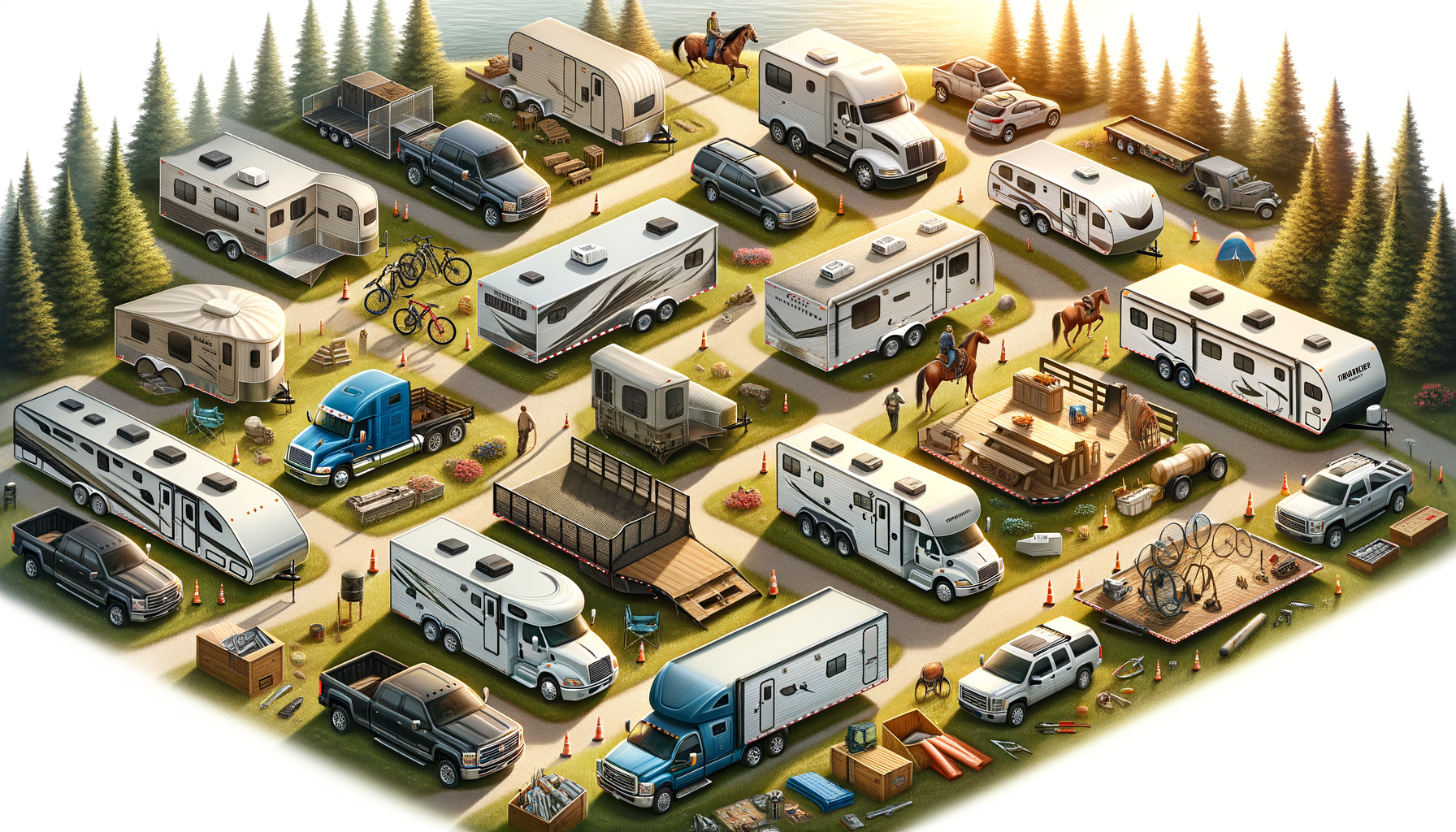Understanding the Different Types of Trailers
When it comes to trailers, variety is the spice of life. There are several types of trailers available, each designed for specific purposes. Understanding these differences can help you make a more informed decision. The most common types include:
- Utility Trailers: Ideal for general purposes, these trailers are great for hauling equipment, tools, and other items.
- Enclosed Trailers: These offer protection from the elements and are perfect for transporting valuable or sensitive goods.
- Flatbed Trailers: Known for their versatility, flatbeds can carry large, bulky items that do not fit in enclosed spaces.
- Travel Trailers: Designed for leisure, these provide living quarters for camping and road trips.
Each type has its unique features and benefits, making it essential to assess your specific needs before making a purchase. For instance, if you’re planning to transport heavy machinery, a flatbed trailer might be your go-to. On the other hand, if privacy and security are your priorities, an enclosed trailer could serve you better.
Key Features to Consider When Buying a Trailer
Choosing a trailer involves more than just deciding on the type. Key features such as size, weight capacity, and materials play a significant role in determining the right fit for your needs. Here are some crucial aspects to consider:
- Size and Dimensions: Ensure the trailer size matches your towing vehicle and intended use.
- Weight Capacity: Check the maximum weight the trailer can handle to prevent overloading.
- Material: Trailers are typically made from steel or aluminum. Steel offers durability, while aluminum is lighter and resistant to rust.
- Brakes and Suspension: Consider trailers with braking systems and robust suspension for safer towing.
These features can significantly impact the trailer’s performance and longevity. For instance, a trailer with a higher weight capacity is suitable for heavier loads, while an aluminum trailer might be preferable for those seeking a lightweight option.
Pricing and Budget Considerations
Budgeting for a trailer involves more than just the initial purchase price. It’s essential to consider other associated costs, such as maintenance, insurance, and potential upgrades. Here’s a breakdown of what to keep in mind:
- Initial Purchase Price: Trailers can range from a few hundred to several thousand dollars, depending on type and features.
- Maintenance Costs: Regular maintenance is crucial to ensure longevity and safety.
- Insurance: Depending on the trailer type and use, insurance might be necessary to protect your investment.
- Upgrades and Accessories: Consider any additional features or accessories you might need, such as ramps or storage solutions.
By accounting for these expenses, you can make a more informed decision that aligns with your financial situation and long-term goals. Remember, investing in a quality trailer can save you money on repairs and replacements in the long run.
Legal and Safety Regulations
Understanding legal and safety regulations is crucial when owning and operating a trailer. Compliance with these rules ensures not only your safety but also that of other road users. Here are some key points to consider:
- Licensing and Registration: Ensure your trailer is properly registered and that you have the necessary licenses to tow it.
- Weight Limits: Adhere to the legal weight limits to avoid fines and ensure safe towing.
- Safety Equipment: Equip your trailer with necessary safety features like lights, reflectors, and brakes.
- Regular Inspections: Conduct regular inspections to ensure the trailer is in good working condition.
Staying informed about these regulations can prevent legal issues and enhance your safety on the road. It’s advisable to check with local authorities for specific requirements in your area.
Making the Right Choice: Tips for Buying a Trailer
Purchasing a trailer is a significant investment, and making the right choice requires careful consideration. Here are some tips to help guide your decision:
- Assess Your Needs: Determine what you’ll be using the trailer for and choose a type that fits those needs.
- Research and Compare: Look at different brands and models to find one that offers the features you need at a reasonable price.
- Consider Future Needs: Think about how your needs might change over time and choose a trailer that can adapt.
- Seek Expert Advice: Don’t hesitate to consult with professionals or experienced trailer owners for insights and recommendations.
By taking these steps, you can ensure that your investment meets your current and future requirements, providing value and functionality for years to come.



Leave a Reply